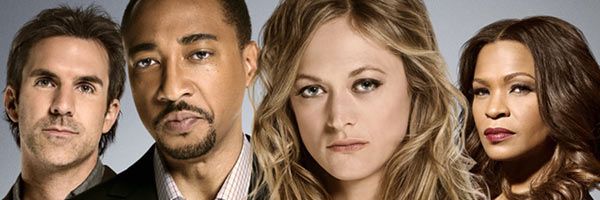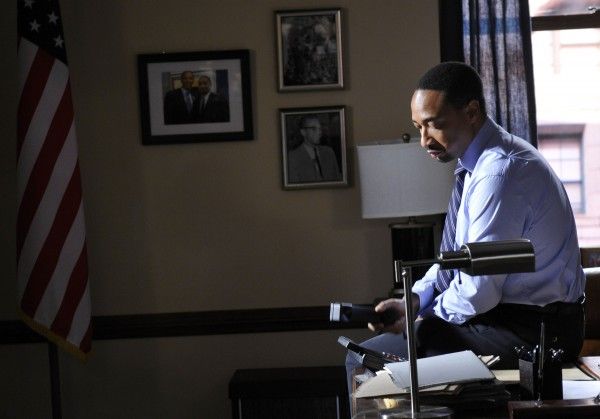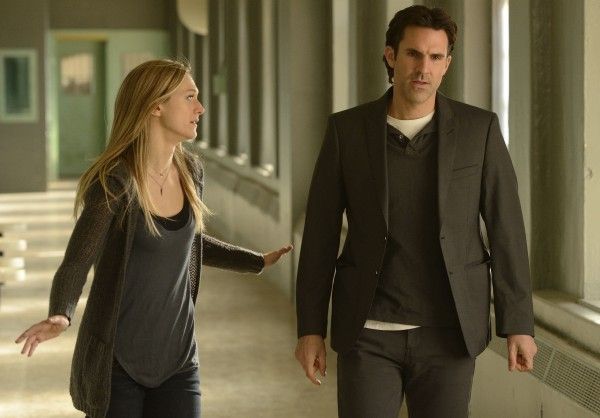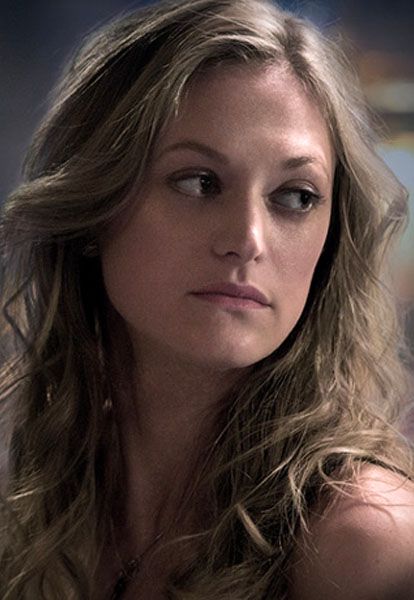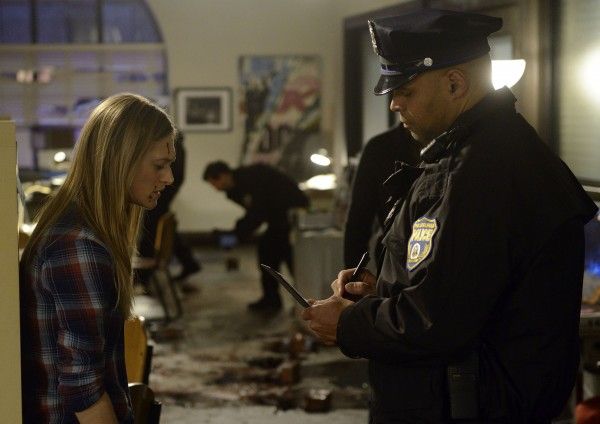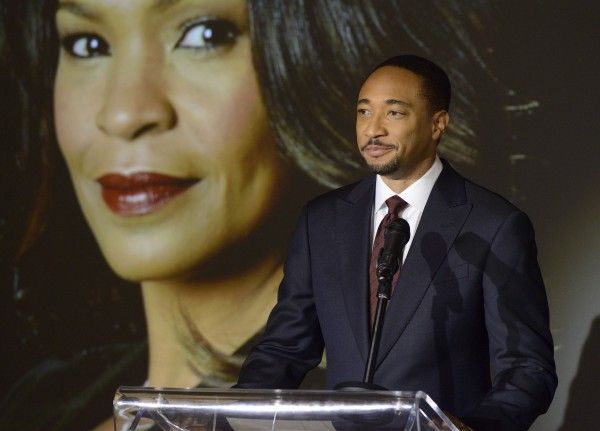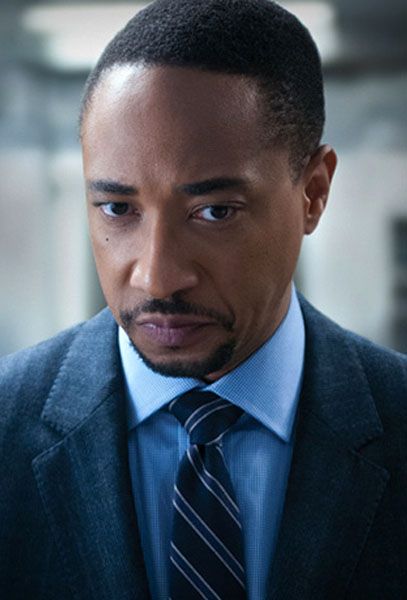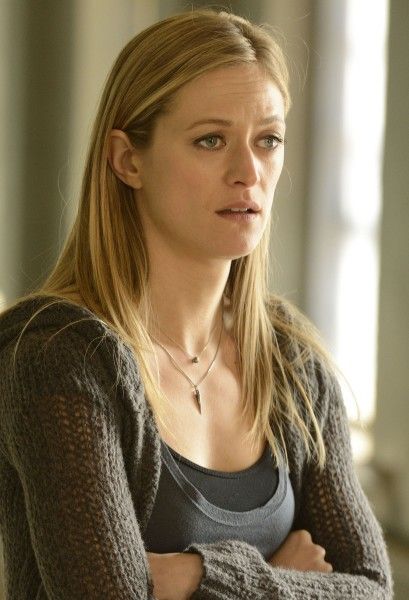The WE TV drama series The Divide follows Christine Rosa (Marin Ireland), a whip-smart caseworker with a knack for getting herself in and out of trouble, and Adam Page (Damon Gupton), the youngest DA in the history of Philadelphia, both on opposite sides of a case where the outcome could either protect or destroy their reputations. Created by Tony Goldwyn and Richard LaGravenese, the show also stars Nia Long, Paul Schneider, Joe Anderson and Clarke Peters.
During this exclusive interview with Collider, executive producers Tony Goldwyn (who also directed the pilot) and Richard LaGravenese talked about how they came to be working together, what drew them to the themes of this story, their road to getting this show on the air, re-shooting the original pilot (that was shot for AMC, before moving to WE tv), setting up the show’s structure for future seasons, why it was so important to them to collaborate with the African American actors on their characters, and what they love about long-term storytelling on television. LaGravenese also talked about the experience of shooting the feature film The Last 5 Years, with Anna Kendrick and Jeremy Jordan, while Goldwyn talked about how exciting it is to be a part of a show like Scandal, that so many people talk about every week. Check out what they had to say after the jump, and be aware that there are some spoilers.
Collider: How did you guys come to be working together?
TONY GOLDWYN: Well, that’s related to how this show came about. The last film that I directed was called Conviction, and that was a true story about an Innocence Project case, that ended up starring Hilary Swank and Sam Rockwell. Richard [LaGravenese] and I met because he came in to do a rewrite of that script for us, while we were in the midst of trying to get it made. We became close friends and wanted to work together again. I made that film and was so fascinated in the themes that it awakened in me, and I thought, “God, there’s a television series in this somewhere.” I didn’t know how to do an Innocence Project show. I know that’s been tried before and didn’t work. And just over a drink one night, we were talking about it and we responded to the same themes. One or both of us suggested centering it about a prosecutor who got it wrong, and we knew that we wanted the young woman at the Innocence Project. And then, we went, “Wow, that’s potential for interesting conflict, and is not just a show about do-gooders.”
RICHARD LaGRAVENESE: It wasn’t the intention to do something important, or to even relate about social issues. The ground is so fertile in the justice world, dealing with the death penalty and the Innocence Project, for characters that have a moral ambiguity, which we were both attracted to. It’s the idea that everybody has their reasons. Whatever their actions are, whether you agree with them or not, you can understand why they’re feeling that way, in terms of racism or even the death penalty. You can take the high moral ground intellectually, but if it ever happens to you personally, I don’t know that I could honestly say that I wouldn’t want to kill someone who took someone away from me. So, it’s a rich, fertile ground for great characters and great storytelling. That was the impetus.
GOLDWYN: I think the problem with polemics is that it’s general and it’s lazy. When you say, “This is bad,” that’s a general thing. We’re more interested in asking the question. There’s a guy being put to death, but maybe he didn’t do it. But he was in the room and, according to Pennsylvania law, if he was in the room, he technically could get the death penalty. There was no mistake made, but he didn’t do it, so how do you feel about that morally? People do things, in order to do what they believe serves a greater purpose, and yet they cross moral rubicons, again and again. That’s how life is. We wanted to do something that held a mirror up to ourselves.
LaGRAVENESE: We wanted to tell a compelling story with great characters. If that prompts discussion, that’s gravy. That’s great. But, that was never the intention. We just wanted to tell great stories. The woman who runs the Pennsylvania Innocence Project told me that there’s a man she’s been trying to get out of prison for 26 years. Every night before she goes to bed, she thinks, “What is he doing?” She says you don’t sleep. And yet, she has the greatest sense of humor and this light that comes out of her. She has three children, her husband is a school teacher and musician, and she works constantly. These are really amazing people.
It was a bit of a process to finally get this show on the air, including re-shooting the pilot. How did that work, and did it work to your advantage?
GOLDWYN: Totally! It was hard, but it worked to our advantage.
LaGRAVENESE: We’re both new to creating television. [Tony] has directed television. We’ve developed things, but this is the first time I got this far. So, it was a process. The great thing about AMC is that they made two great decisions. The first one was to say no to the first version. I don’t know what their reasons were, but for me and Tony, it wasn’t quite baked properly. It wasn’t fully realized. There were really good things in it, but something about it just wasn’t there. So then, they came to us several months later and said, “Let’s not only do it again, but we’ll give you eight episodes. We’ll give you a whole season.” And then, we got a second chance creatively, which you never get, to go back and reinvent something, after we’d made it. We were able to say, “Oh, now I understand. This could have been better. That could have been better.” That was a great opportunity. It was fantastic.
GOLDWYN: We had a great executive, Cheryl Bloch, at WE-tv to develop the notion of putting scripted programming on the network. She’s a very sophisticated lady, and she really wanted our show on there. She was a fresh set of eyes. Pilots are so hard because you try to establish so much. You’ve gotta establish every character and get a sense of where it’s going. You need to tell enough story, so that the audience knows where it’s going, but you don’t want it to be full of exposition. It was difficult. And her whole thing was, “Slow it down.”
LaGRAVENESE: So, we took the first pilot and fileted it. You see the strengths of the original, and then all of the breadth and extra character stuff and extra plot, like with Christine’s boyfriend and father. It really worked out well.
GOLDWYN: But, we wouldn’t have had that opportunity normally. Even when a pilot goes, you shoot it in March or April, and then you have to rush it through post-production by May. If they greenlight it, then you go and there’s no time to think about it. And then, you’ve gotta start shooting in July, so you’re off to the races. With this, we had the luxury of time. They took six or seven months to make their decision, and then they said, “We wanna do it.” We had all summer and fall to go through this rather torturous process of finding this show.
LaGRAVENESE: Which I hear is not uncommon for first-time shows. It’s not uncommon to have chaotic writers’ rooms.
GOLDWYN: We wanted our characters to lead us through this thing, and not have a show where we were like, “Here’s the plot, and here’s what’s gonna happen next.” That’s a different type of television. We were really flying blind sometimes, and it was hard, but very exhilarating creatively. We’re very close. We think with one brain. So, the partnership was amazing.
LaGRAVENESE: We have the same voice. It’s great.
GOLDWYN: The network was fantastic, but you get a lot of anxiety with any production. It was very helpful to have both of us because we could back each other up. As a creator, a director and a filmmaker, you often get assaulted and you lose perspective because you have all of this pressure. It was so nice to call him and say, “What do you think?”
How did you decide to set up the structure of the story for the first season, and were you thinking about how it would work for future seasons?
GOLDWYN: The Butler murders will essentially be resolved and put to rest. But what happens and the way the whole thing unravels will so severely impact the characters’ lives that it will launch them into Season 2, creating all of these other dramas within their lives.
LaGRAVENESE: The case is just the MacGuffin of it, in order to get these characters up and running, and to follow their stories. We see Christine and her father bleeding into the second season. That may play a big part in Season 2, when his appeal comes up.
Christine and Adam are in this world together, but they don’t really cross paths with each other very often, even though what one does affects the other.
LaGRAVENESE: Adam and Billie are the golden couple, and they’re in this world where there’s nothing but possibility and power and future, and Christine is this nobody who pulls this little thread that collapses the whole world. In Season 1, they’re connected, but they’re on parallel universes. We’ve talked about bleeding them in more, in the second season, and getting Damon and Marin into more scenes with each other.
GOLDWYN: It was great to essentially have two protagonists where you’re sympathies could go back and forth between the two of them, throughout the season.
With race also playing such a big part of this, was it important to you to collaborate with your African American actors?
GOLDWYN: It was huge. We’re two middle-aged white guys.
LaGRAVENESE: Absolutely! In Episode 6, one of the scenes I’m most proud of is a scene between Damon [Gupton] and Clarke Peters, or Adam and his father, and it’s all about race. There’s also a scene between Clarke Peters and his grandson that’s also about race. After writing those scenes, I gave it to them and said, “Make sure it’s honest. If it’s not, tell me where it isn’t and we’ll rewrite it.”
GOLDWYN: That came out of long conversations that we had with them, and with everybody. Even with the pilot, I remember sitting down with Damon and Clarke and saying, “We want to be honest about this.” One of the reasons that the African American actors wanted to be a part of the show was because these people are talking to each other the way that African American people talk to each other, and they said that they didn’t see that on TV. So we said, “Okay, we need your help.” We had such interesting conversations about the divides within the black community that we weren’t even aware of. By the time that scene was written, it was amazing because he was dialed in.
Richard, now that you’ve survived a season, how has the experience of writing for long-term storytelling been?
LaGRAVENESE: It’s amazing! It’s a little bit like writing with a gun to your head, but it’s an incredibly creative experience, especially when it’s your gun. It’s something that you want to do, so you’re like, “Can you please point this at me, so I can do it?” It’s a great experience because you get to give breadth to characters and really explore. The thing that I love is human behavior, why people do what they do, who they are, and the choices that they make, and that has to always be plot driven. So, television afforded that.
The last time we spoke, you were excited about going into filming on The Last 5 Years. How did that experience turn out?
LaGRAVENESE: It was amazing! Before this, it was the greatest creative experience I’ve ever had. It was not a studio film. We shot it in 21 days. Anna [Kendrick] and Jeremy [Jordan] were amazing. That will be released later this year. I love it!
Tony, how exciting is it to be a part of a show like Scandal, which is not only great storytelling, but people just can’t stop talking about it?
GOLDWYN: It’s extraordinary. I feel so lucky. It’s like being on a roller coaster ride that just doesn’t seem to stop. I think the greatest thing about it is that we, as a company, feel the same way about the show that all the fans do. That doesn’t often happen. I had never been on a series before. I had other experiences with being in a movie that I think is really great and that might be a hit, but we shot it a year ago and it’s over and I’m onto other things. So, to be right in the midst of it with the audience is amazing. And I don’t know what’s going to happen next on Scandal, so I’m just as excited about it. It feels like this cultural phenomenon that we’re right smack in the middle of. The good thing about being old is that I really am grateful.
The season finale of The Divide airs on WE tv on August 27th.

